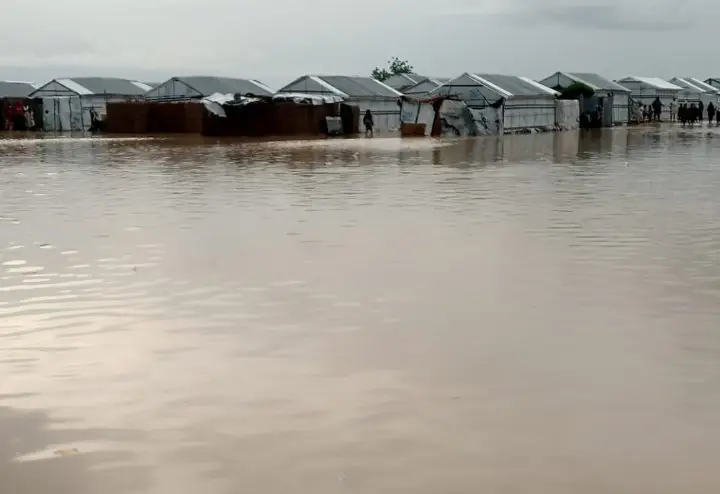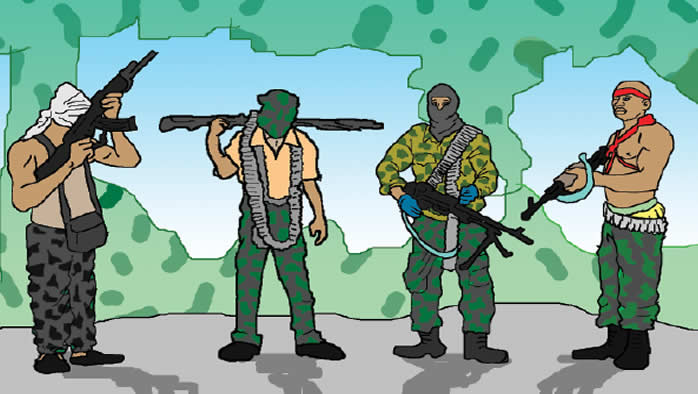Uncertainty pervades the air as the Presidential Election Petition Court (PEPT) gives the long-expected verdict on Wednesday, September 6.
The Court of Appeal Registrar, Umar Bangari confirmed this in a statement on Monday, saying the proceedings will be open to live broadcast by interested television stations.
“The Court of Appeal wishes to inform the General Public that judgment in the following petitions before the Presidential Election Petition Court will be delivered on Wednesday 6th September 2023: CA/PEPC/03/2023 between Mr. Peter Gregory Obi & Anor VS. Independent National Electoral Commission & 3 Ors. CA/PEPC/04/2023 between Allied Peoples Movement VS. Independent National Electoral Commission & 4 Ors,” the court registrar said in a statement.
“CA/PEPC/05/2023 between Abubakar Atiku & Anor VS. Independent National Electoral Commission & 2 Ors. In a bid to promote transparency and openness, these judgments will be televised live by interested Television Stations for the public to follow.”
He, however, said: “Access to the Court premises will be strictly on accreditation. Only accredited individuals, including Counsel and representatives of Political Parties, will be granted access to the courtroom. Interested members of the public are advised to watch proceedings from their television sets. We appeal for the maximum cooperation of the general public to ensure a hitch-free exercise, please.”
The Labour Party (LP), the Peoples Democratic Party (PDP), and the Allied Peoples Movement (APM), as well as their presidential candidates, had petitioned the tribunal seeking to nullify the election of President Bola Tinubu as the winner of the 2023 presidential election.
Judgement is also expected to be delivered by election tribunals in 25 states for governorship, National Assembly, and state assembly election petitions.
The results of the polls announced by the Independent National Electoral Commission (INEC) are being contested in no fewer than 25 states out of the 28 states where elections were conducted.
Though the outcome remains the Tribunal’s guarded secret, some members of the public still fuming over comments credited to retired Supreme Court Justice Mary Odili on Wole Olanipekun, the leading counsel to APC and Lateef Fagbemi.
Mary Odili hails Tinubu’s lawyer
Retired Justice Mary Odili has hailed Wole Olanipekun, President Bola Tinubu’s lawyer at the elections petitions tribunal, as a master of electoral disputes whose expertise in tribunal litigation inspires confidence for victory and that “a resetting of the mind” is soon to come for losers who would eventually accept their loss.
Speaking at a colloquium held in honour of Joe Kyari Gadzama in Abuja on Friday, Mrs Odili said the 2023 general elections generated a storm, particularly from losers, who feel cheated by the elections’ outcome and have since resorted to making incendiary remarks that could plunge the nation into anarchy.
“There seems to be moves to throw the nation into chaos or conflagration. This may be brought about by some individuals and groups who fanning the embers of hatred, bigotry and tribalism fail to see the possible outcome of the utterances without caution that are being thrown around,” Mrs Odili, wife of ex Rivers governor Peter Odili, said at the colloquium which had many members of the ruling All Progressives Congress (APC) in attendance.
The retired justice urged all parties at the tribunal to express their grievances responsibly rather than “blackmail” judges or spread rumours online about the outcome of an active legal case to mislead the public.
“Therefore, in ventilating our points of view and facts at the electoral tribunal or other courts, a sense of responsibility from all parties is demanded, the situation does not call for the blackmail of the judges or the posting of speculatory hypothesis giving them such a life of their own which run riot and accepted by innocent in the society as the truth,” urged Mrs Odili.
Thereafter, she expressed confidence in the legal prowess of Mr Tinubu and the APC’s lawyers, suggesting their combined legal efforts would “at the end of the day” guarantee victory at the tribunal and put to rest all forms of speculatory legal dissection of the electoral disputes in court.
“And I am happy professional…(sic), those who are well equipped in litigation matters and electoral disputes, Chief Olanipekun is a master and our Attorney General recently sworn in. These are experts,” asserted the retired justice.
“I am confident that having such persons here including our chief host Chief JK Gadzama. There is confidence that at the end of the day, a resetting of the mind would be taking place and we would keep things in perspective in the full knowledge that elections are seasonal and litigations relating thereto,” the retired Supreme court Judge stated.
She warned that the losers of the 2023 elections should not use their grievances and frustration as justification to “bring down the roof of our nation,” as they may not be spared by the law.
“It is human to feel cheated or having the short end of the stick but one who is not declared the winner at any of the electoral contests, such a motion however grieved does not justify bringing the roof down, the roof of our nation, the reason is simple that in such an eventuality, that aggrieved person may not be spared as the commotion would be like an unguided missile which could land anywhere and upon anyone,” the former jurist said.
According to Mrs Odili, Mr Olanipekun and Attorney General of the Federation, Lateef Fagbemi, were grounded in electoral disputes, implying that their collaboration was bound to birth victory at the tribunal.
Mr Olanipekun, a highly respected senior advocate, was in charge of the team of lawyers that defended ex-president Muhammadu Buhari’s victory against Atiku Abubakar of the Peoples Democratic Party in 2019 at the tribunal. Mr Olanipekun won the matter for Mr Buhari.
Straightnews observed that before President Tinubu jetted out of the country to India, he had held a closed-door meeting with the security chiefs in the country.
SOURCE: StraightNewsNG










